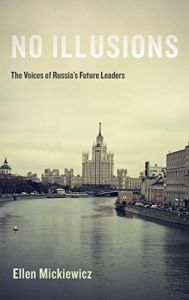Join getAbstract to access the summary!

Join getAbstract to access the summary!
Ellen Mickiewicz
No Illusions
The Voices of Russia's Future Leaders, with a New Introduction
Oxford UP, 2014
What's inside?
Some young Russians want political change. They know it won’t come easily.
Recommendation
To observers outside Russia, it’s easy to imagine Russians blindly believing every one of Russian president Vladimir Putin’s provocative claims. That myth is far from reality, reports Ellen Mickiewicz, a Russia expert at Duke University. For this study, she convened focus groups of 108 ambitious, highly educated young Russians and asked them their thoughts. Their astute analysis doesn’t match the Western stereotypes. These future leaders are predictably fearful of the United States, but they also express deep distrust of their own regime. Tellingly, a significant share of the Russians in Mickiewicz’s focus groups say they don’t feel compelled to vote. The focus group discussions form the basis of this book, and Mickiewicz works in some of Russia’s recent history. The first edition of No Illusions was published in 2014, well before Moscow’s alleged meddling in the 2016 US presidential election. Mickiewicz has updated the book with a new introduction that addresses the resurgent antagonism between Moscow and Washington, DC. getAbstract recommends this study to anyone seeking thoughtful insight into Russian society.
Summary
About the Author
Ellen Mickiewicz is James R. Shepley Emeritus Professor of Public Policy and Political Science at Duke University.

















Comment on this summary